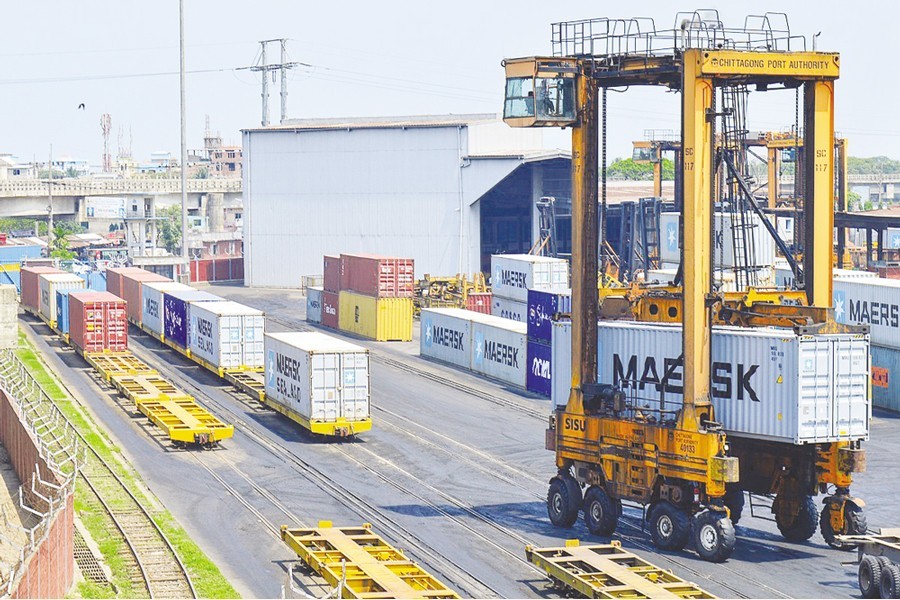
Published :
Updated :

Import orders plummeted by 12 per cent in the first quarter (Q1) of the current fiscal year (FY 2022-23) from the corresponding period of last FY, thanks to regulatory measures for holding back the country's falling foreign-exchange reserves.
The value of LCs (letters of credit) opened against placing import orders dropped to US$18.39 billion in the July-September quarter from $ 20.90 billion in the same period of FY 2021-22, according to the Bangladesh Bank (BB) statistics made available on Thursday.
In September alone, the import orders registered worth $ 5.70 billion - down 31.16 per cent from $ 8.28 billion in the same month a year ago.
When contacted, BB chief economist Dr. Md. Habibur Rahman said the monitoring measures taken by the central bank have helped cut the import orders and that the falling trend of opening LCs will further help reduce the trade deficit.
"If there are not enough greenbacks in the money market to settle import payment obligations, it needs to be supported from the reserves. So, the lower imports will help ease the pressure on the forex reserves," he added.
In the wake of mounting pressure of foreign payment obligations, the BB took some regulatory actions in July last and started monitoring the opening of LCs worth more than $5.0 million to discourage unnecessary imports.
Since then, the volume of LCs keeps declining, easing pressure on the economy that has been suffering from a ballooning trade deficit.
However, the volume of LCs settlements has gone up by 26.6 per cent to US$ 20.69 billion in the Q1 year-on-year as $16.35 billion was recorded in the same period last year.
Seeking anonymity, another BB official said the BB had earlier relaxed the rules with extended time for LC settlement considering the Covid-19 shocks. "And, the pending LCs are being settled now. That's why the LC settlement volume looks large," he added.
Appreciating the import situation, Chairman of Policy Exchange of Bangladesh Dr. M. Masrur Reaz said that it is a good sign for the economy in the short-term.
He said the current account deficit continued to widen and now stood around $32 billion, including a trade deficit of around $18 billion, which is putting pressure on the forex reserves.
"There is no other alternative to restrict imports in the short-term. I know the industrial output will be affected by the situation, but we have to accept it in the present context of the economy," he added.
Leaders of the Metropolitan Chamber of Commerce and Industry, Dhaka (MCCI) at a recent event, however, noted that the control of imports may affect the overall trade as some importers are facing troubles even while importing capital machinery.
jubairfe1980@gmail.com


 For all latest news, follow The Financial Express Google News channel.
For all latest news, follow The Financial Express Google News channel.